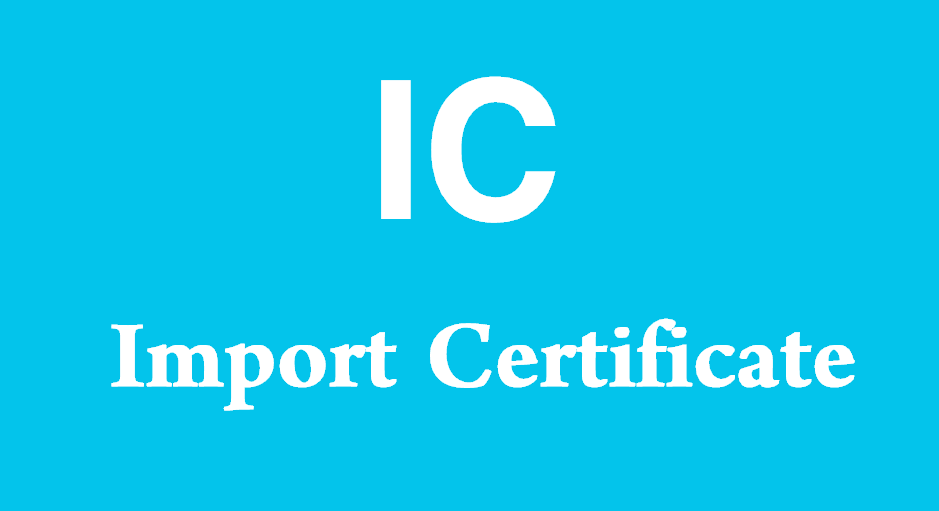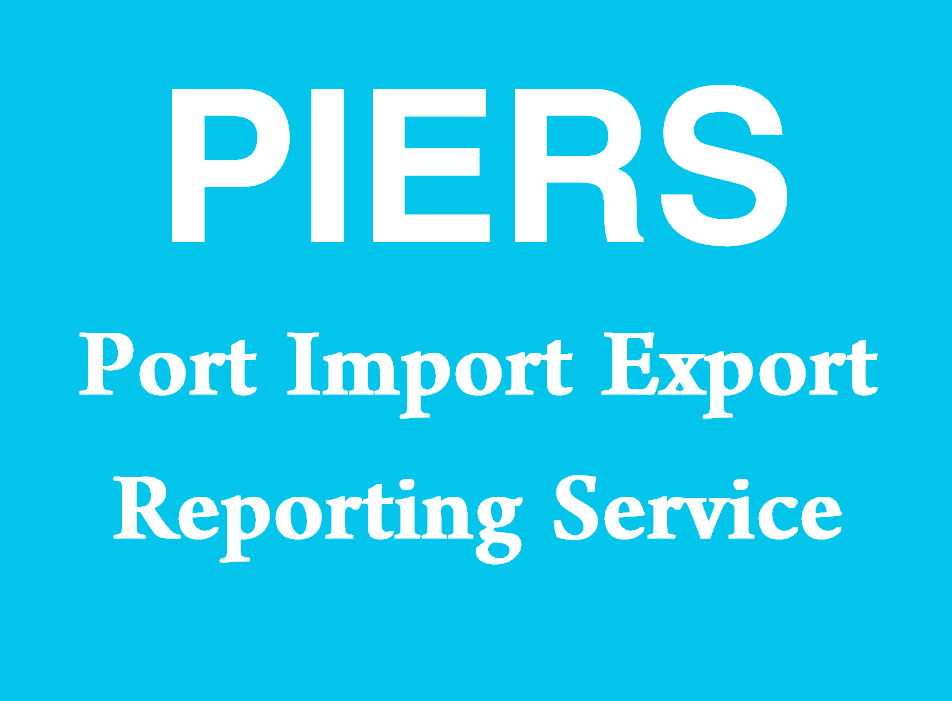What does IC stand for?
IC stands for “Import Certificate.” An Import Certificate is an official document issued by a government or authorized agency that certifies the importation of specific goods into a country. This document serves as evidence that the imported goods comply with regulatory requirements, such as quality standards, safety regulations, or quota restrictions, imposed by the importing country. Import Certificates play a crucial role in facilitating international trade by ensuring transparency, compliance, and control over imported goods, thereby contributing to the smooth functioning of global supply chains and safeguarding the interests of both importers and regulatory authorities.

Comprehensive Explanation of Import Certificate
An Import Certificate is a document issued by a government or regulatory authority of an importing country to certify that specified goods meet certain requirements for importation into that country. Import Certificates serve as a means of regulatory control over the importation of goods, ensuring compliance with various legal, safety, and quality standards. This comprehensive explanation delves into the purpose, types, issuance process, and significance of Import Certificates in international trade.
Purpose of Import Certificates
The primary purpose of an Import Certificate is to regulate the importation of goods into a country by verifying compliance with specific regulations, standards, or restrictions imposed by the importing country. Import Certificates serve several purposes, including:
- Regulatory Compliance: Import Certificates ensure that imported goods meet regulatory requirements set by the importing country, such as safety standards, quality specifications, or environmental regulations.
- Customs Clearance: Import Certificates facilitate customs clearance procedures by providing documentary evidence of compliance with import regulations, thereby expediting the clearance process for imported goods.
- Tariff Classification: Import Certificates may also be used for tariff classification purposes to determine the appropriate customs duties, taxes, or tariffs applicable to imported goods.
- Quota Management: In cases where import quotas or restrictions are in place, Import Certificates help monitor and manage the allocation of import quotas for specific goods or commodities.
- Trade Policy Enforcement: Import Certificates support the enforcement of trade policies, including trade agreements, tariffs, and import restrictions, by ensuring that imported goods adhere to established trade rules and regulations.
Types of Import Certificates
Import Certificates can vary in terms of their types, depending on the regulatory requirements, nature of goods, and importation conditions. Some common types of Import Certificates include:
- Product Certification: Product-specific Import Certificates certify that the imported goods comply with applicable product standards, safety regulations, or quality requirements established by the importing country.
- Health and Sanitary Certificate: Health and sanitary Import Certificates are issued for goods that require compliance with health, hygiene, or food safety regulations to ensure that they are safe for consumption or use.
- Phytosanitary Certificate: Phytosanitary Import Certificates are issued for plant and plant-based products to certify compliance with phytosanitary regulations aimed at preventing the introduction and spread of plant pests and diseases.
- Certificate of Origin: Certificate of Origin Import Certificates certify the origin of goods, indicating the country where the goods were produced or manufactured, and may be required to qualify for preferential trade treatment under trade agreements or tariff schemes.
- Quota Certificate: Quota Import Certificates are issued to regulate the importation of goods subject to quantitative restrictions or import quotas, specifying the quantity or volume of goods allowed for importation within a specified period.
Issuance Process
The issuance process for Import Certificates typically involves several steps, including application, review, verification, and issuance by the relevant government agency or authority responsible for regulating imports. Importers are usually required to submit an application for an Import Certificate along with supporting documentation, such as product specifications, test reports, or certificates of compliance. The regulatory authority reviews the application, verifies the information provided, and assesses whether the imported goods meet the required standards or criteria for importation. Upon successful review and verification, the Import Certificate is issued to the importer, indicating compliance with import regulations and granting permission for the importation of the specified goods into the country.
Significance of Import Certificates
Import Certificates play a significant role in facilitating international trade by ensuring transparency, compliance, and control over imported goods. Some key aspects of their significance include:
- Regulatory Compliance: Import Certificates help ensure that imported goods meet regulatory requirements, standards, and specifications established by the importing country, promoting consumer safety, environmental protection, and public health.
- Customs Facilitation: Import Certificates facilitate customs clearance procedures by providing documentary evidence of compliance with import regulations, thereby expediting the clearance process for imported goods and reducing administrative burdens on importers and customs authorities.
- Market Access: Import Certificates facilitate market access for imported goods by certifying compliance with import regulations, standards, and requirements, enabling importers to access foreign markets and expand their business opportunities.
- Risk Management: Import Certificates contribute to risk management efforts by ensuring that imported goods undergo regulatory scrutiny and verification, reducing the likelihood of importing substandard, unsafe, or non-compliant products that may pose risks to public health, safety, or the environment.
- Trade Promotion: Import Certificates support trade promotion efforts by enhancing transparency, credibility, and trust in imported goods, fostering confidence among consumers, trading partners, and regulatory authorities, and promoting the growth of international trade and commerce.
Notes to Importers
Importers should be aware of several key considerations regarding Import Certificates to ensure compliance with import regulations, streamline import processes, and minimize risks. The following notes provide guidance and recommendations for importers regarding Import Certificates:
1. Understand Import Requirements
Importers should thoroughly understand the import requirements, regulations, and standards applicable to their specific goods and destination country. It is essential to identify the type of Import Certificate required and ensure compliance with relevant import regulations, including product standards, safety requirements, and documentation procedures.
2. Plan Ahead and Obtain Certificates in Advance
Importers should plan ahead and obtain Import Certificates well in advance of the intended importation date to allow sufficient time for application, review, and issuance. Delays in obtaining Import Certificates can disrupt supply chains, delay shipments, and incur additional costs, so it is advisable to initiate the application process early to avoid potential delays or setbacks.
3. Work with Reliable Suppliers and Partners
Importers should work closely with reliable suppliers, exporters, and partners who understand the import requirements and can provide necessary documentation and support for obtaining Import Certificates. Collaborating with trusted suppliers can streamline the import process, ensure compliance with import regulations, and minimize the risk of encountering issues or delays related to certification.
4. Maintain Accurate Records and Documentation
Importers should maintain accurate records and documentation related to Import Certificates, including application forms, certificates of compliance, test reports, and correspondence with regulatory authorities. Keeping comprehensive records ensures transparency, traceability, and compliance with import regulations, facilitating customs clearance and audit procedures.
5. Monitor Regulatory Changes and Updates
Importers should stay informed about changes in import regulations, standards, and requirements that may affect the issuance of Import Certificates for their goods. Monitoring regulatory changes allows importers to adapt their import processes, update compliance procedures, and ensure continued compliance with import regulations to avoid disruptions or penalties.
Sample Sentences with the Acronym “IC” and Their Meanings
- The importer submitted the required IC to the customs authorities, certifying compliance with safety standards for the imported goods.
- Meaning: The importer provided the necessary Import Certificate to the customs authorities, confirming that the imported goods adhere to the safety standards mandated by the importing country.
- Without a valid IC, the importation of certain agricultural products may be subject to delays or restrictions at the port of entry.
- Meaning: In the absence of a valid Import Certificate, the import of specific agricultural commodities could encounter delays or face restrictions upon arrival at the port of entry due to regulatory compliance requirements.
- The IC issued by the regulatory agency serves as documentary evidence of compliance with import regulations and facilitates customs clearance for the imported electronics.
- Meaning: The Import Certificate issued by the regulatory agency acts as documentary proof that the imported electronics meet the import regulations, easing the customs clearance process for the importer.
- Before finalizing the importation of pharmaceutical products, ensure that the supplier provides the necessary ICs to confirm compliance with quality standards and regulatory requirements.
- Meaning: Prior to concluding the import of pharmaceutical goods, it is essential to verify that the supplier furnishes the required Import Certificates to verify adherence to quality standards and regulatory prerequisites.
- The absence of valid ICs for certain food items resulted in the rejection of the shipment at the border, highlighting the importance of compliance with import regulations.
- Meaning: The shipment of specific food items was rejected at the border due to the lack of valid Import Certificates, underscoring the significance of adhering to import regulations to avoid such issues.
Other Meanings of “IC”
| Acronym | Meaning |
|---|---|
| IC | Integrated Circuit |
| IC | Insurance Company |
| IC | Identity Card |
| IC | Information Center |
| IC | Investment Company |
| IC | Intelligence Community |
| IC | Incentive Compensation |
| IC | Interchangeable |
| IC | Internal Control |
| IC | In Case |
| IC | In-Country |
| IC | Incident Commander |
| IC | Ice Cream |
| IC | Instructional Coach |
| IC | Incident Command |
| IC | Internet Connection |
| IC | International Conference |
| IC | Interstitial Cystitis |
| IC | Incomplete |
| IC | Inventory Control |




